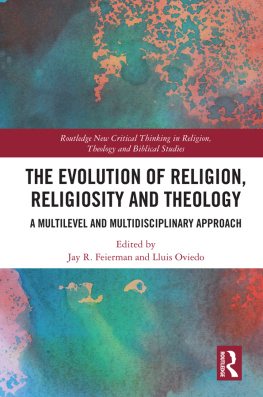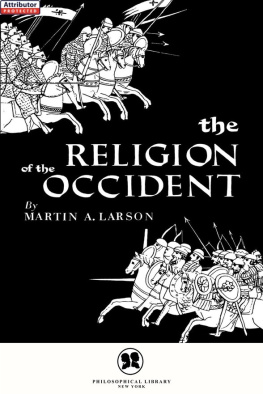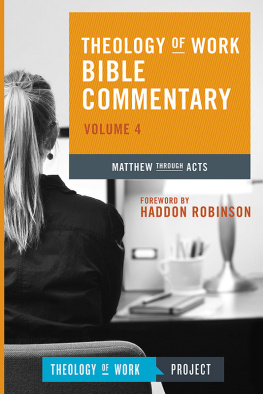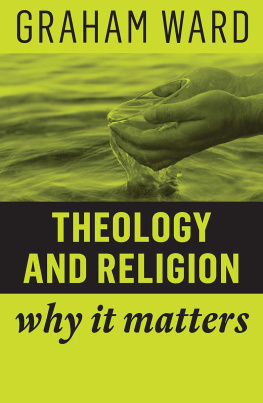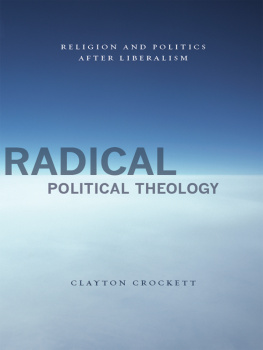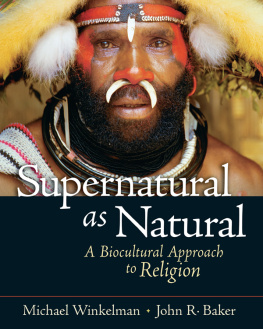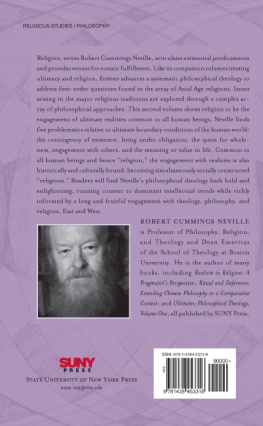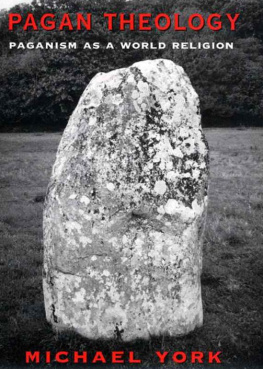The Evolution of Religion, Religiosity and Theology
This book takes a multidimensional and multidisciplinary approach to religion, religiosity and theology from their earliest beginnings to the present day. It uniquely brings together the natural sciences and theology to explore how religious practice emerged and developed through the four parts into which the book is organized: evolutionary biology; philosophical linguistics, psychology and neuroscience; theology; and anthropology.
The volume features an international panel of contributors who develop an innovative picture of religion as a culturally created social institution; religiosity as a more personal and subjective anthropological element of people expressed through religion; and theology as the study of god. To survive in changing times, living systems a good characterization of religion, religiosity and theology must adapt.
This is a vital study of a rapidly burgeoning field. Thus, it will be of great interest to scholars in religious studies and theology and in the psychological, sociological and anthropological study of religion.
Jay R Feierman retired as clinical professor of psychiatry at the University of New Mexico in 2006. He has degrees in zoology and medicine with postdoc specialization and board certification in psychiatry. Almost all of his academic publications in psychiatry and religion have been from the perspective of human ethology, the evolutionary biology of behavior. He has organized a number of international conferences on the evolutionary and biological aspects of religion. He also edited The Biology of Religious Behavior: The Evolutionary Origins of Faith and Religion (2009) and has a number of articles and book chapters in this area.
Lluis Oviedo is full professor of theological anthropology (Antonianum University, Rome) and invited professor in the Theological Institute of Murcia (Spain) for questions of religion, society and culture. He has published the books Secularization as a Problem; Altruism and Charity; The Christian Faith and the New Social Challenges and is coeditor with A Runehov of the Encyclopedia of Sciences and Religions. His research focuses on the scientific study of religion and its theological impact and on issues about secularization and religious social dynamics.
Routledge New Critical Thinking in Religion, Theology and Biblical Studies
The Routledge New Critical Thinking in Religion, Theology and Biblical Studies series brings high-quality research monograph publishing back into focus for authors, international libraries, and student, academic and research readers. This open-ended monograph series presents cutting-edge research from both established and new authors in the field. With specialist focus yet clear contextual presentation of contemporary research, books in the series take research into important new directions and open the field to new critical debate within the discipline, in areas of related study and in key areas for contemporary society.
Theologising Brexit
A Liberationist and Postcolonial Critique
Anthony G Reddie
Vision, Mental Imagery and the Christian Life
Insights from Science and Scripture
Zoltn Drnyei
Christianity and the Triumph of Humor
From Dante to David Javerbaum
Bernard Schweizer
Religious Truth and Identity in an Age of Plurality
Peter Jonkers and Oliver J Wiertz
Envisioning the Cosmic Body of Christ
Embodiment, Plurality and Incarnation
Aurica Jax and Saskia Wendel
The Evolution of Religion, Religiosity and Theology
A Multilevel and Multidisciplinary Approach
Edited by Jay R Feierman and Lluis Oviedo
For more information about this series, please visit: www.routledge.com/religion/series/RCRITREL
The Evolution of Religion, Religiosity and Theology
A Multilevel and Multidisciplinary Approach
Edited by Jay R Feierman and Lluis Oviedo

First published 2020
by Routledge
2 Park Square, Milton Park, Abingdon, Oxon OX14 4RN
and by Routledge
52 Vanderbilt Avenue, New York, NY 10017
Routledge is an imprint of the Taylor & Francis Group, an informa business
2020 selection and editorial matter, Jay R Feierman and Lluis Oviedo; individual chapters, the contributors
The right of Jay R Feierman and Lluis Oviedo to be identified as the authors of the editorial material, and of the authors for their individual chapters, has been asserted in accordance with sections 77 and 78 of the Copyright, Designs and Patents Act 1988.
All rights reserved. No part of this book may be reprinted or reproduced or utilised in any form or by any electronic, mechanical, or other means, now known or hereafter invented, including photocopying and recording, or in any information storage or retrieval system, without permission in writing from the publishers.
Trademark notice: Product or corporate names may be trademarks or registered trademarks, and are used only for identification and explanation without intent to infringe.
British Library Cataloguing-in-Publication Data
A catalogue record for this book is available from the British Library
Library of Congress Cataloging-in-Publication Data
A catalog record for this book has been requested
ISBN: 978-0-367-25026-3 (hbk)
ISBN: 978-0-429-28560-8 (ebk)
Typeset in Sabon
by Apex CoVantage, LLC
Contents
lluis oviedo
PART 1
Evolutionary Biology
hansjrg hemminger
jay r feierman
daniel cohen
donald m broom
PART 2
Philosophy of Language, Psychology and Neuroscience
hans-ferdinand angel
rdiger j seitz
michael n marsh
elliott d ihm, raymond f paloutzian, michiel van elk and jonathan w schooler
benjamin abelow
PART 3
Theology
robert l masson
christopher c knight
william ulwelling
christian early
PART 4
Anthropology
robert k hitchcock
anne solomon
laura betzig
jay r feierman and luis oviedo
Overview
The phrase the evolution of religion might sound like a contradiction in terms. For the first hundred years after Darwins On the Theory of Evolution by Means of Natural Selection, published in 1859, religion and Darwinian evolution were competing paradigms for understanding who we are and how we came to be this way. However, the mechanisms by which humans came to be is a separate issue from the evolution of the social institution called religion, its anthropological expression called religiosity and the study of the object of faith (i.e., God) called theology.
More recently, evolutionary scholars began collaborating with scholars in religious studies and theology. Natural selection, as a mechanism of evolution, could, with some reservations and modifications (see Hemminger, this volume), be applied to culture in general and religion, as a social institution, in particular. It likewise was recognized that biological (i.e., genetic) and cultural evolution of religion were similar to the evolution of human languages. Both must have a genetically transmitted foundation on which specific human religions and languages can, under the right circumstances, be culturally acquired and expressed as what in biology are called phenotypes, the interactions of genes with the environment.

